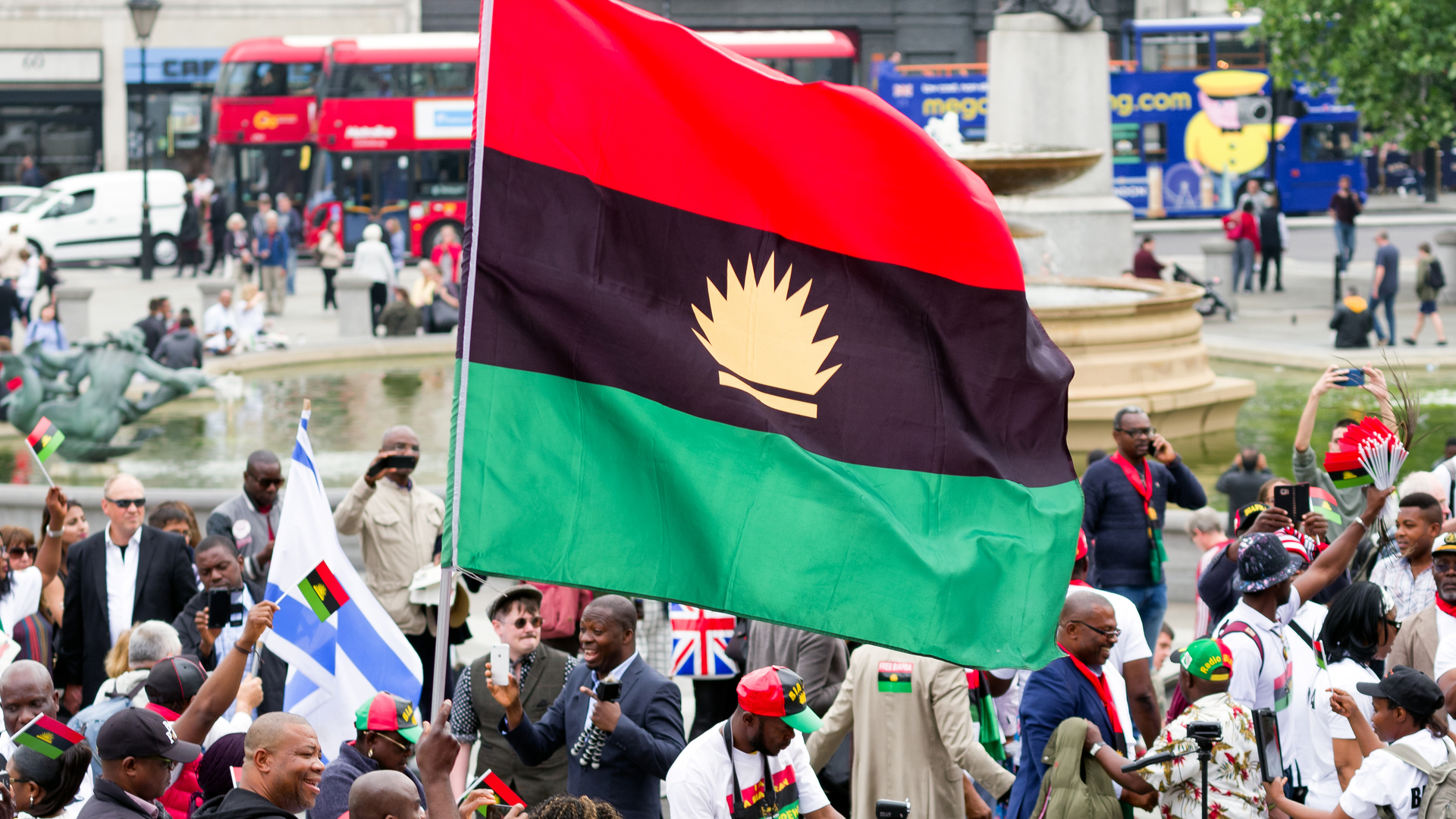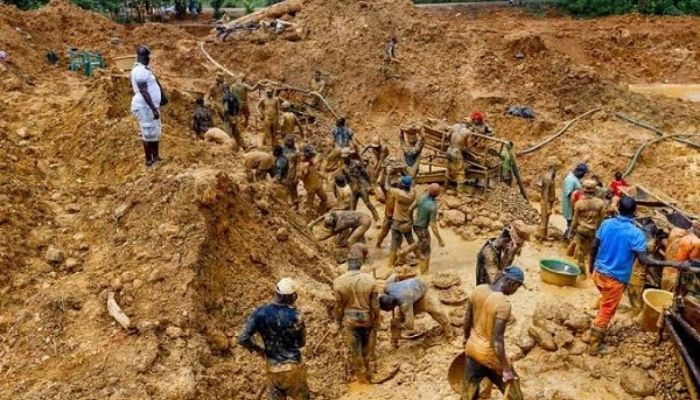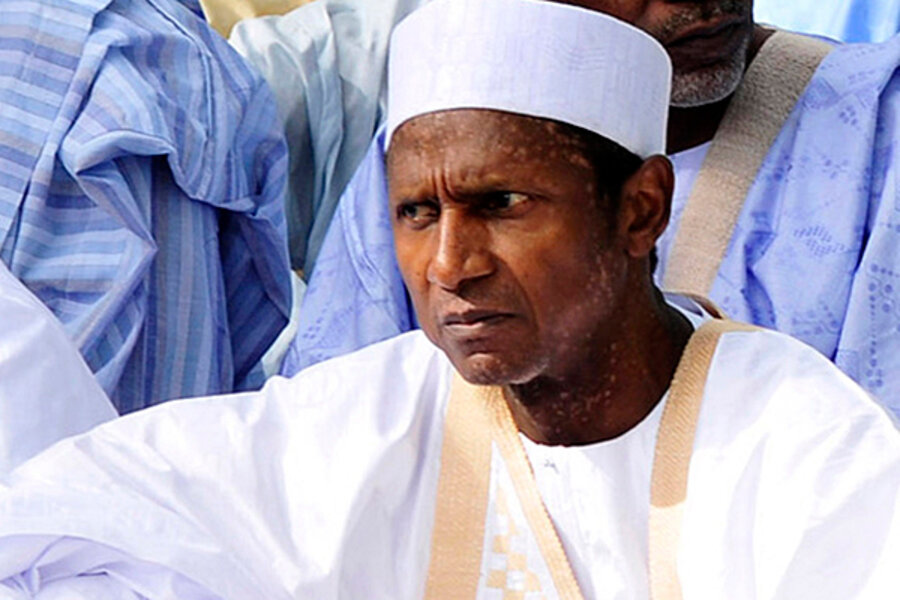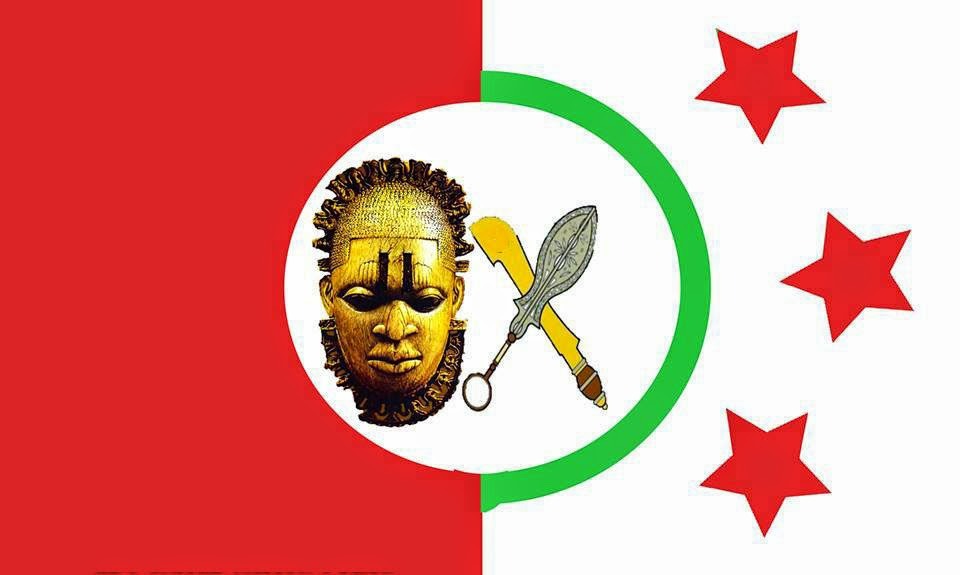culled from GUARDIAN, February 23, 2006
Not even the national census, which has taken a decade and half and billions of Naira to plan is being given so much attention. Yet, whereas, the 2007-succession project is at least 15 months away, all things being equal, the all-important head count is next month. It is like the issue of Obasanjo's status beyond May 2007 must be rested first before other burning national issues can be attended to.
It had seemed farfetched in the beginning and many reasonable people did not give it a serious thought. But gradually, and like an approaching dawn, it got more established and entrenched in the consciousness of Nigerians.
Today, the story of President Obasanjo's reluctance to return to his chicken farm at Ota, Ogun State, after May 29, 2007 is no longer a piece of fiction. It is as real as day light and currently about the only issue in political debates in the country.
Not even the national census, which has taken a decade and half and billions of Naira to plan is being given so much attention. Yet, whereas, the 2007-succession project is at least 15 months away, all things being equal, the all-important head count is next month.
It is like the issue of Obasanjo's status beyond May 2007 must be rested first before other burning national issues can be attended to. So, the debate on what to do with the President after May 29, 2007 is going on steadily.
And as in all debates, there are two sides to it: Those that say that Obasanjo, like the legendary Singaporean Premier, Le Kuan Yew, must remain in office for as long as it takes Nigeria to transform from a third to a first world economy and democracy; and others who hold that after eight years of near fruitless Obasanjonomics, the Baba has become anachronistic in the global trend and must be forced aside much in accordance with the 1999 Constitution and the operational grundnorm of the ongoing democracy.
But time is short and both sides are struggling to keep pace. Only last week, Governor Peter Odili of Rivers State, who had been central in the South-South drive for the presidency in 2007, made a complete turn-around. He announced his entry into the Third Term debate to swear the rank of the pro-Obasanjo group. The governor, who had been amassing chieftaincy titles and holding consultations across the land to put himself in a better stead for the 2007 presidential contest, suddenly lost interest in his own project and went hurriedly to invest in Obasanjo's third term project.
One report said Odili's move has put the South-South Peoples Assembly (SSPA) in "disarray." Another quoted top members of the Assembly as saying the governor "is completely on his own." Whichever, the latest development in the SSPA is being interpreted as part of the overall game plan to secure a third term for Obasanjo.
Some watchers of the polity posit that the planners needed to create some breathing space for the President to put his act together. The calculation was to raise in the SSPA and later the Southern Forum, interests that would run parallel to the core Arewa position regarding 2007.
That way, the North would be naturally weighed down with efforts to contain the opposition from the South-South and Southeast to northern presidency in 2007 while the intrigues to perpetuate Obasanjo in Aso Rock would build without much fuss. This was what informed widespread speculation that the convocation of Southern politicians in Enugu, where tough declarations on 2007 were made, was put together by Obasanjo in furtherance of his third term plan.
Even so, the ultimate strategy is to covert the shadow to substance when every other thing fails. That is, it is the hope that President Obasanjo may realise at some point, the futility of the third re-incarnation and turn-around to work for the inevitability of a South-South or Southeast presidency in 2007. This is why the leadership of the South-South and Southeast has sustained and even stepped up campaigns for the presidency and advertising incontrovertible facts on the marginalisation of the two zones in the national power equation since Independence.
Ambassador Matthew Mbu, chairman of the Southern Forum, has remained eminently focused on this score. He is particularly bothered about two things: The presidency in 2007 and constitutional amendment to reflect higher percentage for derivation (25 per cent to graduate to 50 in five years) in revenue allocation.
On the issue of third term for Obasanjo, Mbu maintains that nothing in the existing rules justifies that level of anxiety being shown by Nigerians. He says the third term campaign is a ploy by the core North to divert attention from the issues of resource control and marginalisation of the South-South and Southeast geo-political zones.
This is also what Chief Onyema Ugochukwu, senior special assistant to the President is saying. He argued, in an article published in several papers, that the third term plot is a piece of fiction, which has, however, been fertilised to a level of fact by the media.
Another aide of Obasanjo, Chief Femi Fani-Kayode had argued previously that his boss would respect the Nigerian Constitution on the matter of succession in 2007.
The other side including Governor Orji Kalu, who returned last week from the United Kingdom and United States, purportedly on an anti-third term campaign, is shouting wolves and advising the flock to either resist or take cover. Members of the Obasanjo political household are, however, saying there is no cause for alarm.
In all, the planners of the third term project have been most creative. Every gimmick has been dexterously deployed to advertise the project as good business and encourage Nigerians to buy into it. First, Obasanjo, who had avoided the idea of a political reform conference like a plague, became born-again overnight and embraced the conference with both arms.
So, convinced was the President that even when the National Assembly refused to appropriate funds for the conference, he got around the legislators and sourced funds from other channels to ensure that Nigerians met and talked for four months. One estimate puts the cost of the confab at N1 billion.
Perhaps, by today, the third term business would have been far less rowdy if the confab had managed to agree on a suggestion smuggled in by the presidency, that the tenure of the President be extended beyond what is currently contained in the 1999 Constitution. Instead, the Justice Niki Tobi-headed confab wound-up proceedings, throwing the questions on tenure of elected public officers and derivation back at the President for resolution.
Apparently, the thinkers in the Obasanjo political household had taken so much for granted. They did not reckon with the resistance of the delegates, who came from diverse backgrounds and interests. Many, especially State delegates, were under stern instructions from governors, who sent them, to resist the conference convenors' bait with the last drop of their blood.
When the conference failed, the option of using the 36 State governors and the National Assembly was considered. But the reports have been most confusing. Once, it was reported that 30 governors had lined behind Obasanjo in his third term bid. Within the same week, the Northern Governors were reported as saying "no" to Obasanjo.
A fortnight ago, the PDP Southwest governors reportedly adopted Obasanjo for a third term. Even Governors James Ibori and Victor Attah are no longer enthusiastic about being Vice President to a northern candidate in 2007. Indeed, following the fall of Governor DSP Alamieyeseigha, the South-South States particularly Delta, Akwa-Ibom and Bayelsa are fast becoming malleable to the antics of Abuja.
Two-term governors, who have been promised automatic return should the third term project pull through, are naturally more forthcoming except for few stubborn ones identified as Bola Ahmed Tinubu from the Southwest, Orji Uzor Kalu (Southeast) and Joshua Dariye (North Central).
But altogether, it is a game of probability where the governors are waiting to gauge the turbulence of public opinion before they either anchor or set sail with Obasanjo into the sea of uncertainty that is 2007.
The last, and perhaps, the most legitimate hope, rests with the proposed amendment to the Constitution. About 100 items, including the tenure of the President, have been listed for tinkering. On the President's tenure, the Senator Mantu-led Senate Committee has advanced three proposals on the review of the 1999 Constitution. These are:
Two terms of five years each.
Three terms of four years each.
Retention of the status quo (two terms of four years each).
This is also not working as fast as calculated. The Senate subcommittee instituted to look into the Mantu Report before it goes on public hearing has dumped all suggestions bordering on the extension of tenure beyond 2007.
Thus, the campaigners, as it is, are left with a zero option. Senate President Ken Nnamani has dropped sufficient hint. At the first plenary session of the Senate this year, he said: "Our economic prosperity and social stability require policy continuity, not necessarily regime continuity. Indeed, regime change and periodic renewals of the people's mandate are critical ingredients of participatory democracy."
President Obasanjo may have been wrestled to a standstill on the controversial third term programme. He has been ominously silent on the matter except for his speech in Germany sometime last year when he told an international audience that he was under tremendous pressure from Nigerians to continue in office.
Nigerians mounting the pressure will include Chief Festus Odimegwu, managing director of Nigerian Breweries, who has never missed any opportunity to advertise the Obasanjo's presidency as the best thing that has happened in Nigeria since Independence.
If Chief Odimegwu is not talking, members of Transcorp, the national company with official backing to cut offshore deals, will be saying precisely the same thing. They include Mrs. Ndidi Okereke-Onyuike, director-general of the Nigerian Stock Exchange, Mr. Femi Otedola, Alhaji Aliko Dangote, among others.
Consequently, if anything, the sustained opposition to the third term agenda by credible quarters has exploded the myth that Obasanjo is, after all, not under any form of pressure to overstay his welcome, as prescribed by the 1999 Constitution. The UK and US have sent signals of their dissatisfaction with the peddled extension of tenure. South African President Thabo Mbeki has said in passing that he would not seek a third term or encourage his party, the African National Congress (ANC) to use its numerical strength at the Legislature to amend the Constitution to that effect.
As always, the Obasanjo administration's razor tongue, Femi Fani-Kayode has told all foreign leaders to mind their countries. Also, when former Head of State, General Yakubu Gowon (rtd) advised that President Obasanjo should learn from history and let the sleeping dog lie, Fani-Kayode advised him to shut up.
But the heat has remained unabated and Baba appears to have asked a few of his men to do some explanations. This is why the PDP leadership has been generous with sporadic denials of the plot to extend Obasanjo's stay in power beyond 2007. Onyema Ugochukwu's article is an exercise in a similar vein. His argument, in a nutshell, is that the thick smoke notwithstanding, there is no fire underneath. He has dismissed the huge and palatable subject matter of third term, which has kept the media busy for over a year, as a hoax.
If Ugochukwu's position turns out the case, Nigerians will be very happy. Vice President Atiku Abubakar will be happier. His ambition to succeed Obasanjo and the latter's determination to frustrate that ambition have often been mentioned as part of the several motives driving the third term project.












